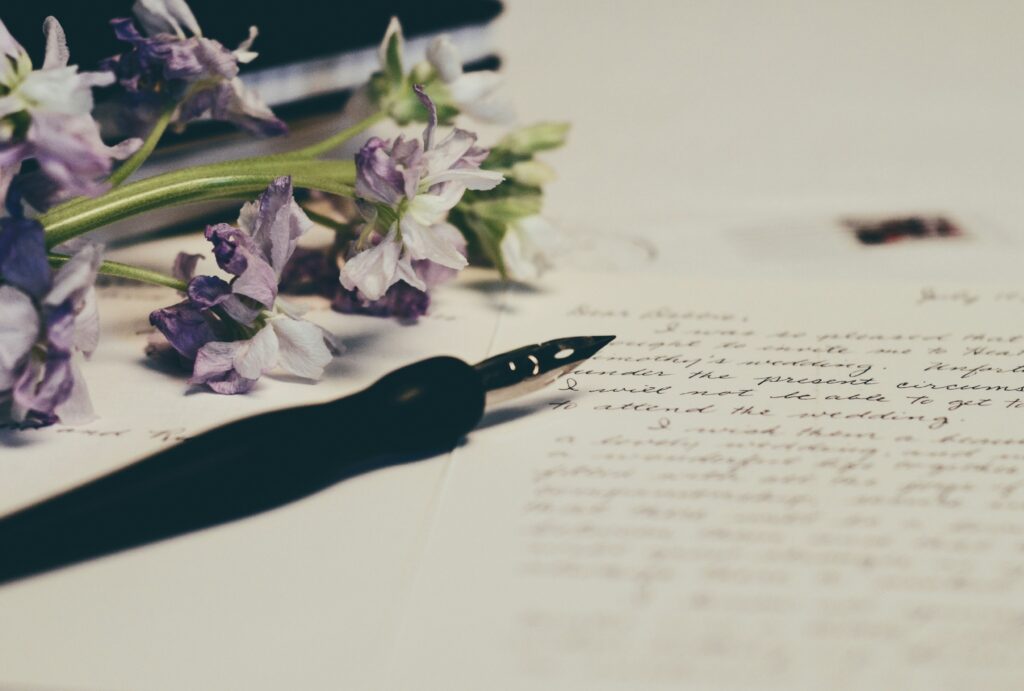On Being “Under-read”

Dear Classmate from my Brit Lit Course,
Thank you for your question after my presentation! I was afraid that my last slide about the Hopkins reading was more confusing than guiding, so it’s great to know that you understood what I meant. Honestly, most of what we read completely stumps me on first encounter, which is why I am reaching out to you now. If I could ask you a question in regards to a reference you made in class today: When did you read Keats? I hope this isn’t as forward as it sounds; I don’t mean to interrogate your personal knowledge of British literature in any sense. Since joining the MFA program, I’ve found myself estranged from most of the canonized authors that students call back to during lecture. Maybe you can enlighten me:
Did you take a class on his work? In my undergraduate program, many of the classes I gravitated towards centered women and other writers from the margins of Western literary circles. Though I loved authors like Audre Lorde, Gloria Anzaldúa, and Cherríe Moraga, it’s impossible to shake the feeling that I “missed out” on something essential by skipping over other familiar faces of the literary world. We weren’t even required to read Pride and Prejudice or The Grapes of Wrath in high school, and for the classics that we did encounter, I flew through them the night before essays were due. From what I remember, there was little discernment over whether an author we studied was valued over another in terms of a “literary legacy” because they were all published and in my hands as a public school student; that presence felt influential enough to award any author a spot amongst the greats of their genre. However, this far into my academic career, it feels as though I doomed myself by avoiding the giants like Austen, Wilde, and Tennyson. It’s clear now that I am behind (or temporally in front) of the historical landmarks that contextualize each of our discussions in academia.
“Ay, there’s the rub,” or whatever Shakespeare said. Perhaps it’s my background that predisposes me towards ignorance. Did you read Keats growing up? I am a first-generation student, and although my mother encouraged reading early on, it was never texts that may appear in an edition of The Heath Anthology. As a product of the “No Child Left Behind” program, my teachers were more than impressed if I read at all—they were less concerned with what I was reading or if it held merit outside of the Accelerated Reader point system, and more burdened with the task of pulling us through to the next STAAR exam. After talking to a few members of our cohort, this exclusion from the shared milestones that canon texts symbolize for English aficionados is common, if not universal. The gap between what is expected to be read by graduate school and the reality of our different experiences with the canon couldn’t be clearer when considering the ever-expanding demographics of the classroom.
One of the main arguments against Western canon is the lack of representation afforded to marginalized authors and their work. This undertone of exclusion dissuaded me from engaging with those “representative” writers. The faces that I met in class or at the supermarket rarely looked like or sounded like the characters in a Virginia Woolf novel, further shrinking my desire to prioritize canon voices over those who are already struggling to be heard. Is it an issue of taste, then? Or are there larger forces at work? There seems to be an enduring reflex to retain older works in “the dialogue” around literature. My personal theory behind this phenomenon is that we continue to rely on the familiarity of authors and resources available in a cyclical pattern of engagement: the books that get taught/studied are the ones with an abundance of critical works written about them, and vice versa. But this recycling bin we continue to draw from is something that should be acknowledged if we ever want to change the ways in which we speak about texts. This semester, we learned about Toru Dutt, a poet whom some sources refer to as “India’s Keats.” Though her talent and use of popular Victorian forms are clear in the work available to us now, few scholars have yet to discuss her short life in papers on the literary era. In any other conversation external to this hyper-specific Brit Lit course, would people get the reference? Or does the hierarchy begin within the canon itself, and stretch outwards towards the classrooms?
I hear the nag of self-pity and contrarianism droning through this email, so in service of offering new insights for both of us to consider, I look to other writers on the topic of reading canon. Aatif Rashid, UCLA instructor and fiction writer published in The Kenyon Review, models a median position from which to view canon texts—one that produces genuine moments of appreciation for craft while maintaining a healthy amount of skepticism on canon construction. “In Defense of a Literary Canon” doesn’t task Rashid, or anyone who enjoys nominally-impactful writing, with defending the canon as it exists now; rather, the concept of elevating quality writing to a pedestal of influence is how the power of canon allows for budding authors who are “sensitive to their respective prisons” to “transform the walls that confine them” (Rashid). After all, the ability for a marginalized writer to speak back to the world that denies their contributions requires them to exercise “an awareness of the great poets and novelists who preceded them” (Rashid). This feels true in some ways—although I fear that aspiring after the monoculture of older canonical texts causes writers to lose the voice that individualizes or defines their work. It is impossible to critique what we don’t understand. On top of this, there is irrefutable merit in most of the older texts referenced by our classmates, but the flaws or exclusionary aspects of the canon cannot be parsed from the gold of literary legacy without a full understanding of their content. Still, reading and discussion (however critical) keep these texts at the forefront of our literary community.
Then, classmate, was it then me who committed the snobbery of turning up my nose at Austen, Wilde, and Keats? My God, I even name-dropped Audre Lorde in the most obnoxious demonstration of too-cool-for-Chaucer antics that I thought possible for myself. The poet in me shrivels at the thought of damning any work as a “good” or “bad” text; I’ve read life-changing literature stuffed into the tiniest crannies of a cell, and belabored over the epics of Homer without a stir in my shackles. Despite this, my tastes and attitudes are seemingly unrefined by what my peers and predecessors acknowledge as canonizable work. Though I don’t think this admission of my hipsterish tendencies will turn me into a scholar of James Joyce, it is only fair for me to give these forefathers (and mothers, the few we can access) of literature a more honest try. The list of excuses otherwise is marginally more worthless than any gripe that I could offer after reading the text. Now, classmate, where do I start?
Warm Regards,
Raven
P.S. If you asked me, Toru Dutt is more of the Elizabeth Barrett Browning of India, but that’s neither here nor there.


